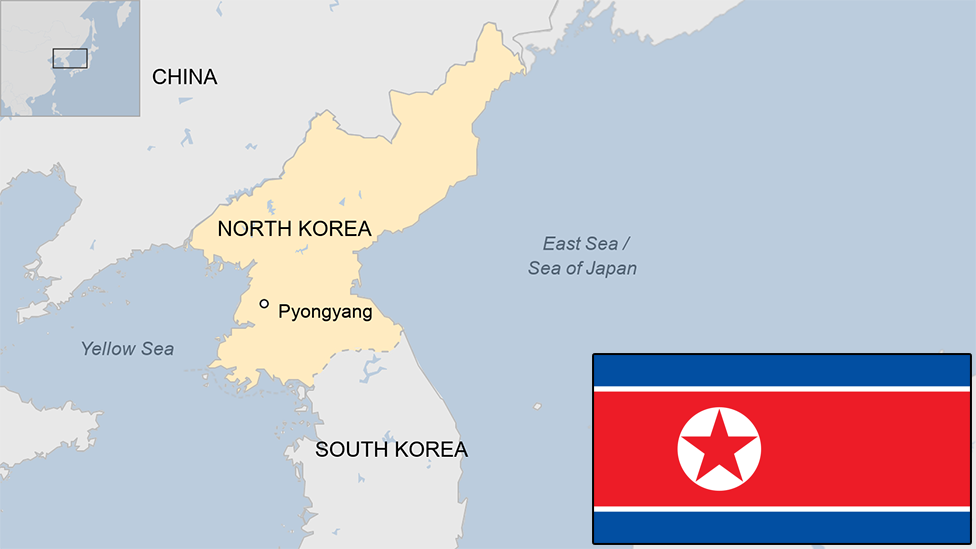North Korean leader urges nuclear readiness
- Published
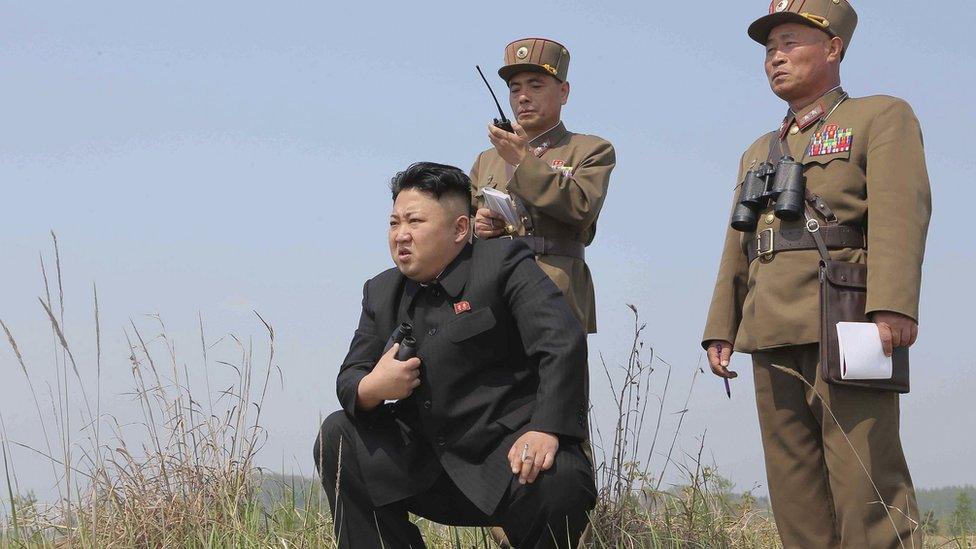
Kim Jong-un made his announcement at a military drill, KCNA reported
Kim Jong-un has said North Korea's nuclear weapons should be ready for use "at any time", state media report.
He told military leaders North Korea would revise its military posture to be ready to launch pre-emptive strikes, the Korean Central News Agency said.
But despite its rhetoric it remains unclear how advanced the North's nuclear weapons programme is.
The UN has imposed some of its toughest ever sanctions on the North following its nuclear test and missile launch.
In response on Thursday, the North fired six short-range projectiles into the sea.
What impact will sanctions have?
Will carrots or sticks change North Korea?
KCNA said Mr Kim was speaking at a military exercise on Thursday, which is thought to be when the projectiles were fired.
He said North Korea "must always be ready to fire our nuclear warheads at any time" because enemies were threatening the North's survival.
"At an extreme time when the Americans... are urging war and disaster on other countries and people, the only way to defend our sovereignty and right to live is to bolster our nuclear capability," he was quoted as saying.
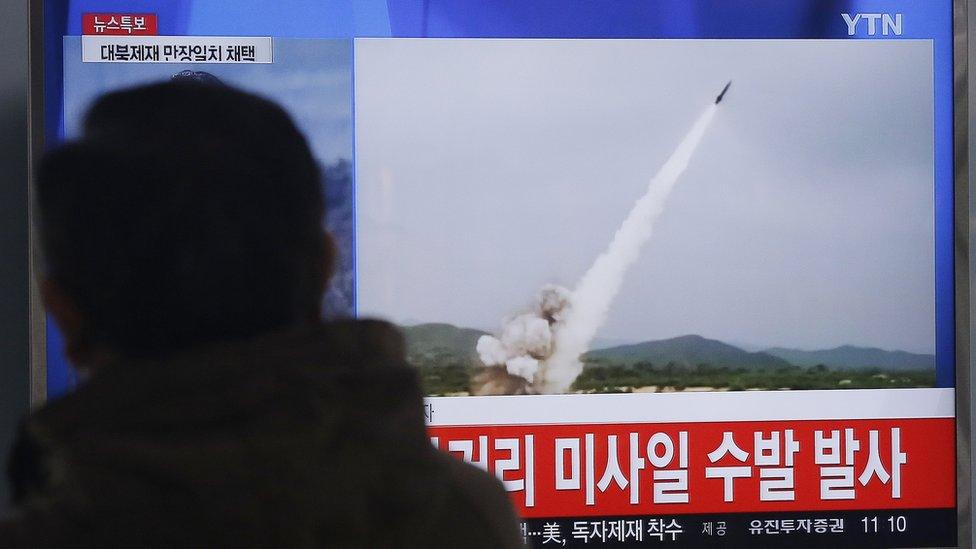
Footage of North Korea launching short-range projectiles into the sea was shown on South Korean TV
Analysts still doubt whether North Korea has the ability to make a nuclear bomb small enough to put on a feasible missile, but Kim Jong-un's announcement brought a swift response from the US.
"We urge North Korea to refrain from provocative actions that aggravate tensions and instead focus on fulfilling its international obligations and commitments," Pentagon spokesman Commander Bill Urban said.
The US and South Korea began talks on Friday on the possible deployment of a US missile defence shield in the South.
Initial talks will focus on the costs, effectiveness and environmental impact of installing the Terminal High Altitude Area Defense (THAAD) system, among other issues, the Yonhap news agency reported.

What is the Terminal High Altitude Area Defense System (Thaad)?
Shoots down short and medium-range ballistic missiles in the terminal phase of their flight
Uses hit-to-kill technology - where kinetic energy destroys the incoming warhead
Has a range of 200km and can reach an altitude of 150km
US has previously deployed it in Guam and Hawaii as a measure against potential attacks from North Korea
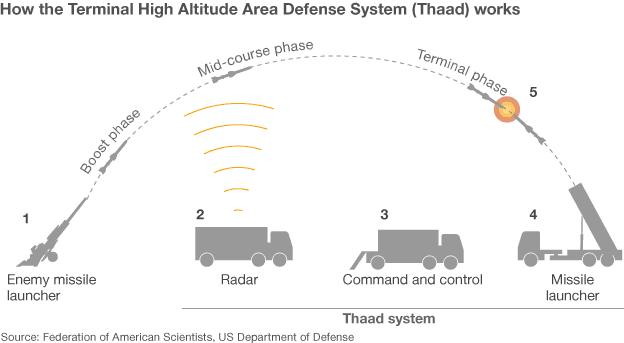
1. The enemy launches a missile
2. The Thaad radar system detects the launch, which is relayed to command and control
3. Thaad command and control instructs the launch of an interceptor missile
4. The interceptor missile is fired at the enemy projectile
5. The enemy projectile is destroyed in the terminal phase of flight
The launcher trucks can hold up to eight interceptor missiles.

North Korea sanctions explained
John Sudworth reports from Dandong in China on the continuing trade between North Korea and China
What exactly is banned?
The export of coal, iron and iron ore used for North Korea's nuclear or ballistic missile programmes.
All gold, titanium ore, vanadium ore, rare earth minerals and aviation fuel exports.
Any item (except food and medicine) that could develop North Korea's armed forces.
Small arms and light weapons are now included in an arms embargo.
Upmarket watches, watercraft, snowmobiles and other recreational sports equipment added to a ban on luxury goods.
No vessels or planes can be leased or registered to North Korea.
What are the other measures?
Member states must inspect all cargo to and from North Korea, not just those suspected of containing prohibited items.
An asset freeze on North Korean funds linked to nuclear and missile programmes.
Foreign financial institutions cannot open new offices in North Korea without approval, and North Korean banks cannot open offices abroad.

- Published24 February 2016
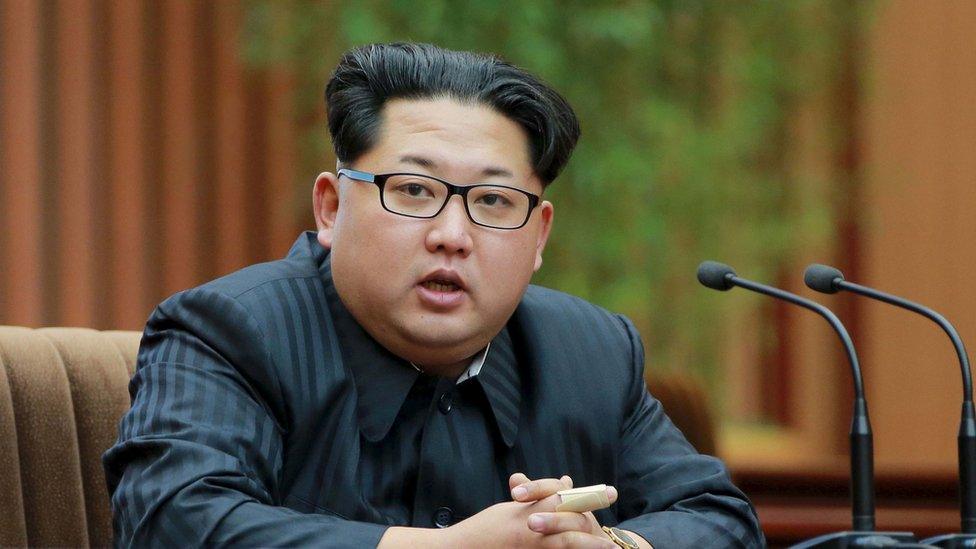
- Published10 August 2017
- Published10 August 2017
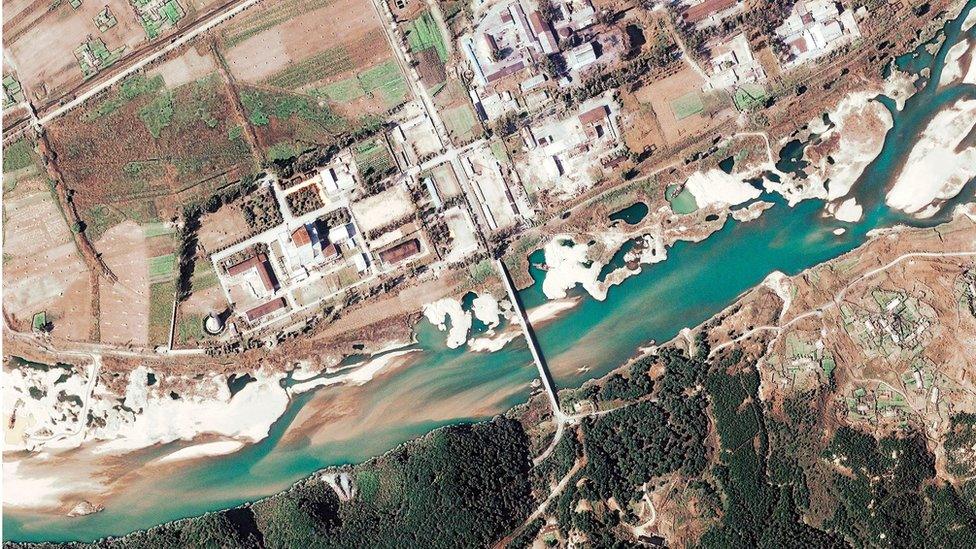
- Published19 July 2023
